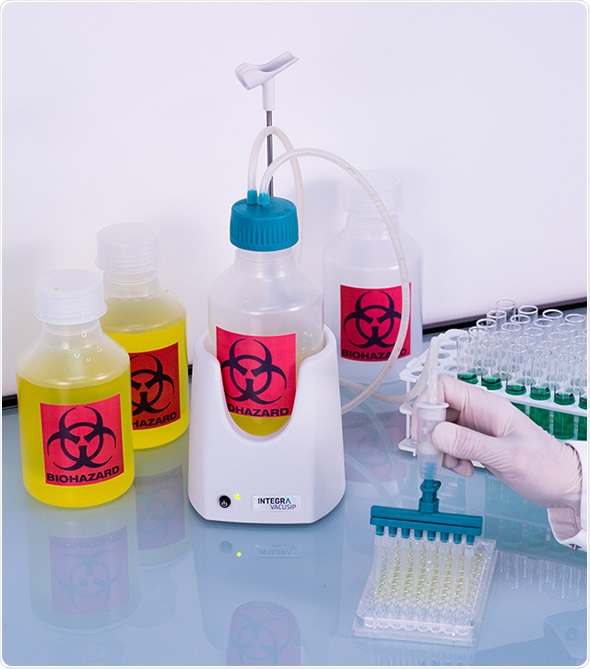Cutting-edge Industrial Wastewater Treatment Solutions: Shielding the Atmosphere
Cutting-edge Industrial Wastewater Treatment Solutions: Shielding the Atmosphere
Blog Article
Recognizing the Comprehensive Process of Liquid Waste Disposal: Finest Practices and Environmental Effect Considerations
The administration of fluid waste disposal is a complex problem that needs a thorough understanding of numerous best practices and their associated ecological effects. From the types of liquid waste generated to the methods utilized for collection, treatment, and last disposal, each action plays an essential duty in safeguarding ecological communities and public health and wellness.
Sorts Of Liquid Waste
Understanding the different kinds of liquid waste is vital for reliable monitoring and disposal practices. Fluid waste can be broadly classified right into several types, each requiring special handling and therapy methods.
Industrial liquid waste usually contains dangerous products, including hefty steels, solvents, and chemicals, generated during producing procedures. These wastes necessitate strict governing compliance to safeguard human health and the setting. Residential liquid waste mostly refers to wastewater produced from houses, consisting of sewer and greywater, which, although less hazardous, can still position considerable threats if improperly taken care of.
Agricultural fluid waste, including drainage from farms, usually has fertilizers and chemicals that can result in environmental destruction if not dealt with appropriately. Clinical fluid waste, generated from health care facilities, includes contaminated fluids such as physical fluids and chemicals, requiring specialized disposal methods to avoid infection and ecological contamination.
Finally, oil and grease waste, usually generated by dining establishments and automotive markets, can create severe clogs in sewage system systems if not managed properly. Understanding these groups helps with targeted methods for treatment, compliance with policies, and efficient disposal approaches, eventually promoting environmental sustainability and public wellness security.

Collection Approaches
Reliable collection techniques are important for the correct management of fluid waste, making certain that it is gathered securely and efficiently before treatment or disposal. Different strategies are utilized relying on the kind of fluid waste created, the quantity, and the particular attributes of the waste.
One common method is using devoted collection storage tanks or sumps, which are created to record fluid waste at the source. These systems typically integrate pumps that promote the transfer of waste to larger storage space containers or therapy facilities. Furthermore, mobile collection devices geared up with vacuum cleaner innovation are used in situations where waste is produced periodically or in hard-to-reach places.
For commercial setups, closed-loop systems can properly decrease leakages and spills, permitting the recovery and reuse of fluid waste. It is also important to educate workers on proper collection protocols to mitigate risks associated with unsafe substances.
Moreover, carrying out normal upkeep schedules for collection tools ensures optimal efficiency and security. The integration of sophisticated monitoring systems can improve collection effectiveness by supplying real-time information on waste levels and prospective risks. On the whole, reliable collection methods are foundational to sustainable fluid waste administration techniques.
Treatment Procedures
Treatment processes play a vital role in the administration of liquid waste, changing potentially dangerous products right into multiple-use sources or safe effluents - liquid waste disposal. These processes can be generally categorized right into physical, chemical, and organic techniques, each customized to deal with details impurities existing in the waste stream
Physical treatment methods, such as sedimentation and filtration, work by getting rid of put on hold solids and particulate issue. These techniques are typically the look at here very first step in the therapy chain, effectively lowering the load on succeeding procedures. Chemical treatments include using reagents to counteract hazardous materials, precipitate heavy steels, or oxidize organic contaminants, consequently enhancing the safety of the effluent.
Biological treatment processes, including activated sludge systems and anaerobic digestion, take advantage of the natural capabilities of bacteria to degrade raw material. These methods are especially effective for wastewater consisting of eco-friendly toxins. Advanced treatment modern technologies, such as membrane layer filtration and progressed oxidation procedures, are increasingly utilized to accomplish greater degrees of purification.
Including a combination of these treatment techniques not only makes sure conformity with regulatory criteria however additionally advertises ecological sustainability by recovering important resources from liquid waste.
Disposal Options
Exactly how can companies guarantee the responsible and safe disposal of liquid waste? Effective disposal alternatives are vital for guarding public health and wellness and the atmosphere. The key approaches include land treatment, incineration, and disposal complied with by discharge right into metropolitan wastewater systems.
Land disposal involves the cautious containment of fluid waste in designated landfills, making certain that it does not seep into surrounding dirt or water. Incineration, on the other hand, subjects liquid waste to heats, converting it into ash and gases, which call for appropriate filtering to reduce emissions. This approach appropriates for unsafe wastes that can not be treated via typical ways.
In cases where liquid waste can be dealt with, organizations might choose chemical or organic therapy procedures to neutralize damaging elements before releasing the treated effluent right into local systems. This course typically aligns with governing needs, guaranteeing that the effluent meets safety standards.
Ultimately, organizations have to conduct detailed assessments of each disposal choice to determine its viability, considering aspects such as waste structure, regulative compliance, and potential threats to wellness and the setting. By choosing proper disposal approaches, businesses can add to a liable waste management technique.
Ecological Impact
The ecological influence of liquid waste disposal is an essential consideration for organizations Home Page seeking to reduce their eco-friendly footprint. Furthermore, the discharge of neglected or improperly treated waste right into surface waters can result in eutrophication, leading to oxygen depletion and the succeeding death of fish and other microorganisms.

To reduce these effects, organizations need to embrace best techniques such as implementing strenuous waste treatment processes, advertising recycling and reuse, and sticking to governing criteria. By taking a proactive method to fluid waste administration, entities can substantially reduce their environmental impact while sustaining sustainable advancement objectives. Eventually, a detailed understanding of the environmental effects connected with fluid garbage disposal is important for notified decision-making and accountable stewardship of natural resources.
Final Thought
Efficient monitoring of fluid waste is crucial for protecting ecological honesty and public wellness. Ultimately, a comprehensive understanding of fluid waste disposal not only reduces environmental effects yet additionally cultivates a dedication to responsible resource administration and ecological stewardship.
The management of fluid waste disposal is a multifaceted issue that requires a detailed understanding of various ideal techniques and their connected environmental impacts. From the types of liquid waste created to the methods utilized for collection, therapy, and final disposal, each action plays a vital duty in securing ecological communities and public wellness.The environmental influence of liquid waste disposal is a crucial factor to consider for organizations looking for to decrease their environmental impact. Ultimately, a comprehensive understanding of the environmental influences linked with fluid waste click resources disposal is vital for educated decision-making and responsible stewardship of all-natural resources.
Eventually, an extensive understanding of fluid waste disposal not just alleviates environmental influences however additionally cultivates a dedication to accountable resource monitoring and environmental stewardship.
Report this page